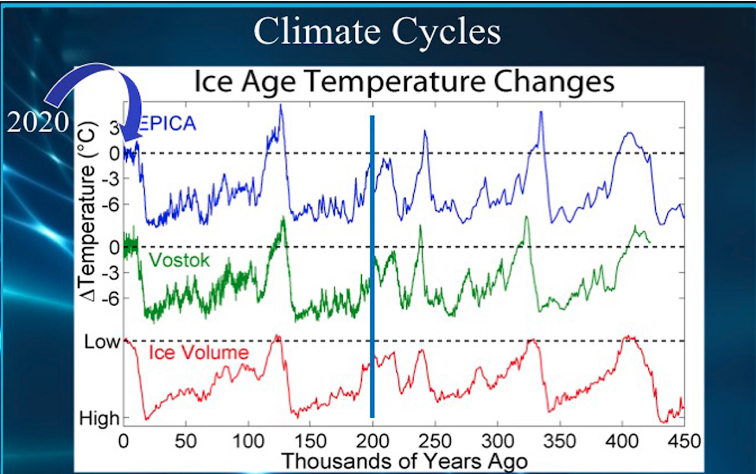First a little history on how climate change and the fear of, has preoccupied mankind.
But, first, there are many who are not going to like how this ends up.
So, in America the concerns over climate change goes all the way back to Thomas Jefferson who, in his book, Notes on the State of Virginia , in 1787, had this to say on the topic;
"A change in our climate however is taking place very sensibly. Both heats and colds are become much more moderate within the memory even of the middle-aged. Snows are less frequent and less deep. They do not often lie, below the mountains, more than one, two or three days, and very rarely a week…”
Jefferson continued, “The elderly inform me the earth used to be covered with snow about three months in every year. The rivers, which then seldom failed to freeze over in the course of the winter, scarcely ever do so now. This change has produced an unfortunate fluctuation between heat and cold, in the spring of the year, which is very fatal to fruits. From the year 1741 to 1769, an interval of 28 years, there was no instance of fruit killed by the frost in the neighbourhood of Monticello."
Noah Webster, yes, the same Mr. Webster of Webster's Dictionary fame criticized Jackson in a work titled, A Dissertation on the Supposed Change in the Temperature , published in 1810 .
Briefly, Webster claimed Jefferson had no concrete evidence on climate change;
"Mr. Jefferson seems to have no authority for his opinions but the observations of elderly and middle-aged people," Webster’s, lengthy rebuttal, not only went after Jefferson but, attacked other climate critics of the era such as Samuel Williams, who also advanced the argument that clearing trees “caused the land to become warmer and drier.”
Sound familiar?
Now to the present and I am certain there will be many people who are not going to like what follows.
However, no one will be able to refute the science presented here.
First off, there is no argument the earth is warming, but, according to the chart below, cooling is next. The evidence is clear and based on Ice Core samples/information from the Antarctic dating back Four Hundred Thousand Years.
Note, the temperatures, in the graph below, for the first 200,000 years before humans appeared in this epoch. The following 200,000 years are delineated by the Blue line.
Now, you will NOTE that the lines of the first 200,000 years fit perfectly over one another and nearly follow the exact same pattern and as you will note, yes we are warming , but, according to the chart, a cooling trend is on the horizon.
I can recall in the early to late 1970s scientists were sounding the alarm for a new “Ice Age” and the devastation it would soon bring upon us. Never happened and quite frankly, I believe this to go the same route as the “Ice Age,” warnings of the 70s, much ado about nothing.


